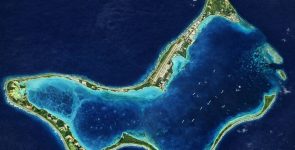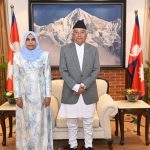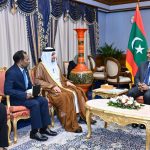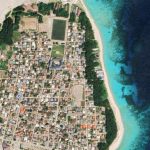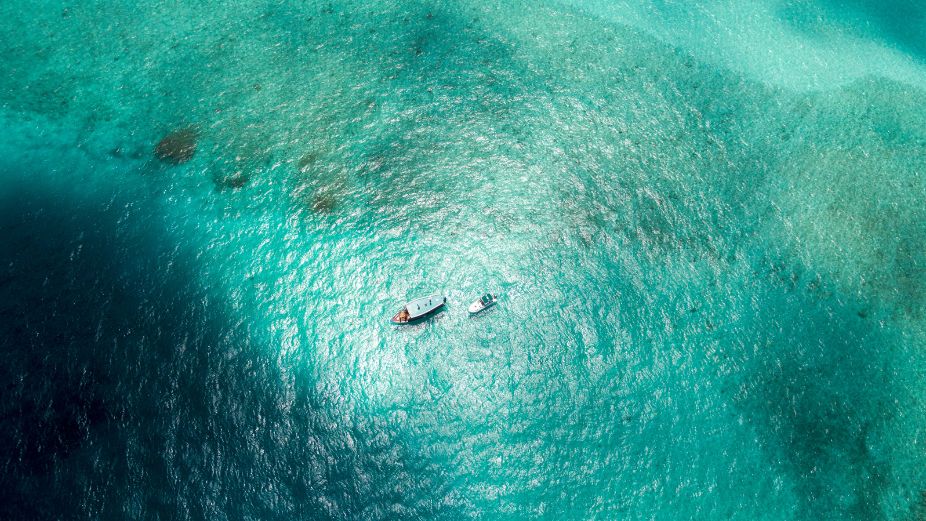
The Maldives has long attracted international researchers. Our reefs are among the most biodiverse on the planet, our tuna fishery is one of the largest pole-and-line operations globally, and our vulnerability to sea level rise makes us a natural case study for climate science. Yet despite this steady stream of visiting scientists, too much of the work conducted here ends up abroad, in foreign labs, in international journals, and in policy discussions far removed from our shores. This practice, known as parachute science, leaves Maldivian scientists and institutions marginalised in studies that directly affect our economy and future.
At its heart, parachute science is about extraction. Data is collected locally but interpreted elsewhere. Findings are written without Maldivian voices. And while international researchers often advance their careers, the country that provided the field site may see little of the benefit. For the Maldives, where science feeds directly into livelihoods and national survival, this imbalance is not just academic. It is economic.
Tourism, fisheries and infrastructure all depend on sound science. Reef surveys can tell a resort how to protect its house reef and keep divers coming back. Tuna stock assessments are the foundation of the Maldives’ Marine Stewardship Council eco-label, which underpins market access to Europe and beyond. Coastal modelling informs million-dollar projects such as land reclamation and sea walls. When this science is conducted in silos, without proper data sharing, government and businesses are left guessing.
There are encouraging counterexamples. The monitoring of manta rays and whale sharks at Hanifaru Bay directly shaped the decision to declare the site a marine protected area, balancing conservation with tourism revenue. The South Ari Marine Protected Area’s management plan, too, was informed by years of research involving both international scientists and Maldivian stakeholders. In fisheries, stock data collected locally and fed into the Indian Ocean Tuna Commission has been central to maintaining the Maldives’ reputation for sustainable tuna. The Coral Institute has also stood out as a positive example, building strong international partnerships while ensuring Maldivians are involved in research and training. These successes show what happens when research is not just done in the Maldives but also done with the Maldives.
New facilities are beginning to strengthen the country’s own research capacity. The inauguration of the Maldives’ largest marine research centre at Jawakara Islands Maldives is a signal of how private sector partnerships can support national science. With modern laboratories and a mandate to study coral resilience and marine biodiversity, centres like this give Maldivian scientists the infrastructure to lead studies rather than just host them. As Sebastian Steibl noted during a tour of the centre, procedures are being put in place to ensure research is collaborative and the results are shared locally. If these facilities are fully connected to government policy frameworks, they can help close the gap between international projects and local priorities.
The government has also begun to tighten the rules. Research permits now require reports and data to be submitted to ministries. Exporting samples is restricted, and international conventions on genetic resources are enforced. These measures are important, but they are only as strong as their enforcement. Too often, datasets remain on laptops overseas, and findings are shared years later, if at all. The Maldives needs to go further by insisting that all research conducted here feeds back into national databases and is available to policy makers in real time. Shared science could then drive stronger marine protection and more ambitious sustainability measures. Resorts, for example, could use such data to adopt OECMs (Other Effective Area-Based Conservation Measures), reinforcing their brand value while contributing to national conservation goals.
This is not about shutting doors to international collaboration. On the contrary, the Maldives should remain a hub for global science. But it must become a hub on its own terms. That means requiring co-authorship with Maldivian scientists on projects carried out here. It means training local students alongside visiting researchers. And it means mandating that raw data and metadata are deposited with Maldivian institutions, not just foreign repositories.
Businesses also have a stake. Resorts that host marine research projects should insist on data-sharing agreements that inform their sustainability strategies. Fishing companies need accurate science to maintain eco-certifications and reassure buyers. Infrastructure investors need clarity on erosion and sea level projections before committing capital. By demanding transparency and collaboration, the private sector can help shift the balance away from extraction toward partnership.
International journals are already moving in this direction. PLOS, eLife and others have introduced policies requiring authors to explain how local partners were involved. These are soft incentives, but they give governments leverage. If Maldivian authorities align research permits with these standards, the country can ensure that what is published about our reefs, fisheries and climate also reflects Maldivian perspectives.
The Maldives cannot stop being studied, nor should it. But it can insist that research conducted here strengthens its own capacity, informs its own policy, and benefits its own economy. In a nation where the future depends so heavily on evidence-based decisions, science cannot be allowed to parachute in and out. It must land, stay, and take root.






